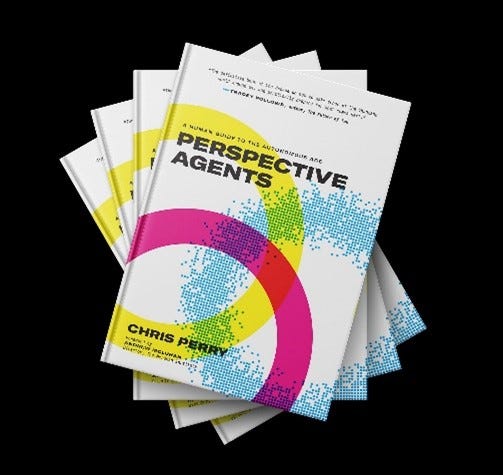Welcome to the first of a new monthly newsletter from Weber Shandwick's crisis and risk management experts.
We get it – every day throws a new challenge at brands and businesses, impacting how you communicate with the people that matter most. We know it’s tough to figure out the risks associated with each new issue, whether it’s a brand recall, an advertising campaign or litigation. That’s where Compass for the Chaos comes in. We are here to give you the lowdown on the latest trends and topics on issues impacting the companies we advise.
This newsletter will provide you with a comprehensive understanding of how we view these issues – from a global perspective – and how leaders in reputation management across our client base are approaching them with our guidance. Our insights are not just theoretical – we'll be drawing from real-world examples and leaning on the world-class work we’ve done forecasting and planning against reputational risk for the last two decades.
February’s edition of the newsletter comes to you from the U.S., but in the future, expect to hear from leaders in the crisis practice from around the globe.
We’ll be in your inbox at the beginning of each month with a curated digest of insights.
Best,
Peter Duda, President, Global Corporate Issues at Weber Shandwick
Eric Blankenbaker, Executive Vice President, Global Corporate Issues at Weber Shandwick
Was this newsletter forwarded to you? Subscribe to our Substack to receive these moving forward.
What we are looking at right now:
Misinformation and disinformation are only going to get worse. If you are in the C-suite, you already know you are navigating an increasingly complex global terrain. Polarization of opinions has only become stronger and more strident. When sophisticated forms of disinformation are becoming commonplace (i.e., fake robocalls and social media posts, AI-generated political ads, deepfakes) and an increasingly charged political landscape is added into this environment, it’s a potential powder keg for any company and brand that comes under public or lawmaker scrutiny. (We’re looking at you, Taylor Swift/Le Creuset & you, Beyond Meat.) Leaders need to assess and familiarize themselves with their audiences’ expectations, particularly when it comes to any initiative that might be viewed through a political or cultural lens, and be open to employing new technologies, tools and approaches. Most importantly, leaders will need to remain agile and vigilant to ensure audiences hear your true message. Are you monitoring the online landscape, educating employees on identifying and reporting misinformation, leveraging trusted voices and elevating authentic content? Have you developed rapid response protocols to counter false claims quickly and effectively?
Major sporting events present opportunities for big rewards – if you do your due diligence. In 2024 some of the biggest sporting events in the world will put athletes – and brands – at center stage. Millions of live television viewers and in-person spectators captivated by both Super Bowl LVIII and the 2024 Olympics in Paris create tremendous opportunities for companies to invest in high-impact campaigns and reach massive audiences. Not to mention, the ever-growing popularity of women’s and college sports make leveraging athletics a nearly year-round possibility. However, this increased visibility inevitably comes with increased scrutiny and risk. Brands should thoroughly vet every facet of a major campaign or activation ahead of these events to ensure blind spots aren’t being missed to avoid a blunder that lands them in the national or global spotlight.
SCOTUS is going to be a big deal in 2024 in the U.S. Following significant rulings in recent years that have allowed nationwide abortion bans and a reversal of affirmative action in higher education admissions, the Justices are now slated to rule on presidential immunity, abortion access, gun control, the January 6th Capitol attack and more. These rulings could set new precedent on highly polarized issues, forcing brands to assess how they should interpret laws and how they should weigh in on highly charged topics, while avoiding culture war crossfire zones. While SCOTUS has sought to consolidate power, Americans’ confidence in the institution has diminished and they’ll be looking for a source of perceived righteousness elsewhere. Companies must be prepared to strategically communicate with key stakeholders – especially their employees – ahead of these rulings, which are expected in June. The vehicle through which companies communicate will be vital to reaching the right audience with the right message, especially as audiences have shifted to social media as their primary news source.
ESG is dead, long live ESG. In 2023, corporate initiatives around ESG – environmental, social and governance – faced challenging political criticism and public backlash. As a result, companies are now undertaking a “quiet rebranding” of ESG by shifting away from the term, which has been highly politicized, and instead focusing on its underlying practical solutions. In 2024, brands will likely remain committed to advancing their sustainability efforts and social impact programs, as consumers and investors continue to expect companies to demonstrate innovation, quantitative progress and robust reporting – even if they don’t use the label ESG.
This month’s newsletter received contributions from Meghan Durant, Mady Epplin, David Weinberg, Mae Symmonds, Sara Miller, and Sammy Brill.
One big thing to read:
Call us old-fashioned, but we are still big believers in the art of reading (sorry, TikTok). So much so, that we often grill new hires on the last book they’ve read. One thing you should probably make sure to read this month? Chris Perry, our Chairman of Futures, is out with his new book called Perspective Agents. The book is a guide for anyone looking to navigate and prosper as technology brings new ways of thinking and living. It’s a way of working our team has already embraced, even if political and business leaders are concerned about its ethical implications and implementation challenges – including job displacement, lack of trust and amplified misinformation. We look at AI as an additive to our daily work, not as a replacement for our people. This year, expect companies to integrate AI more heavily into their operations, AI developers to find ways to build trust and transparency in their technologies and increased conversation around AI regulation.
Who is doing it right (or, who prevented a major meltdown this month):
When Sol de Janeiro received a review claiming the brand's newest product, the Delícia Drench body butter, attracted wolf spiders, the brand had to figure out a way to dispel the claims while avoiding worrying customers and making the issue bigger than it already was. A serious response from the brand would have only heightened the issue, as it could have given validity to the claims. Sol de Janeiro's response, which was posted to their Instagram story, shared in social media comments and provided to media outlets, scientifically detracted claims that the butter included chemicals known to attract spiders, while also using humor to keep the tone light and mirror the absurdity of the review.
Do you have an example of a company that handled a recent issue well and should be featured in the newsletter?
Merging the robots with the human:
We recently leveraged human-supervised analysis using Chat GPT 3.5 to identify the presence or absence of certain language or corporate commitments for 3 major societal / geopolitical issues. This was a benchmarking exercise for one of our clients and we looked at over 5,000 data points, including 500+ statements from 150+ leading multinational companies. The results of that work showed that our client’s strategy of being deliberate in timing and exercising caution in their language choices in their public and internal communications allowed them to remain committed to their values and people, while also avoiding unnecessary scrutiny that other companies have walked into.







